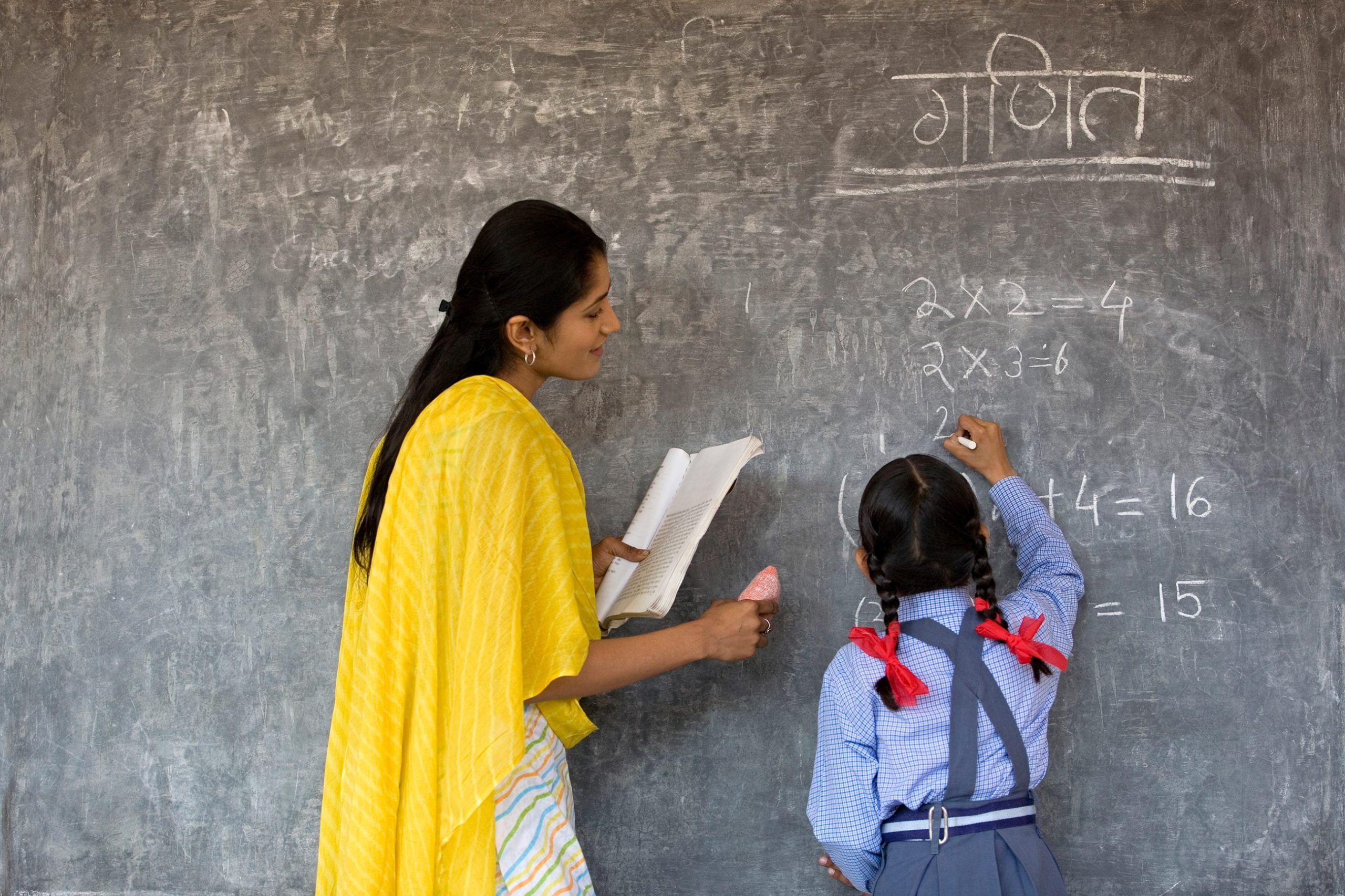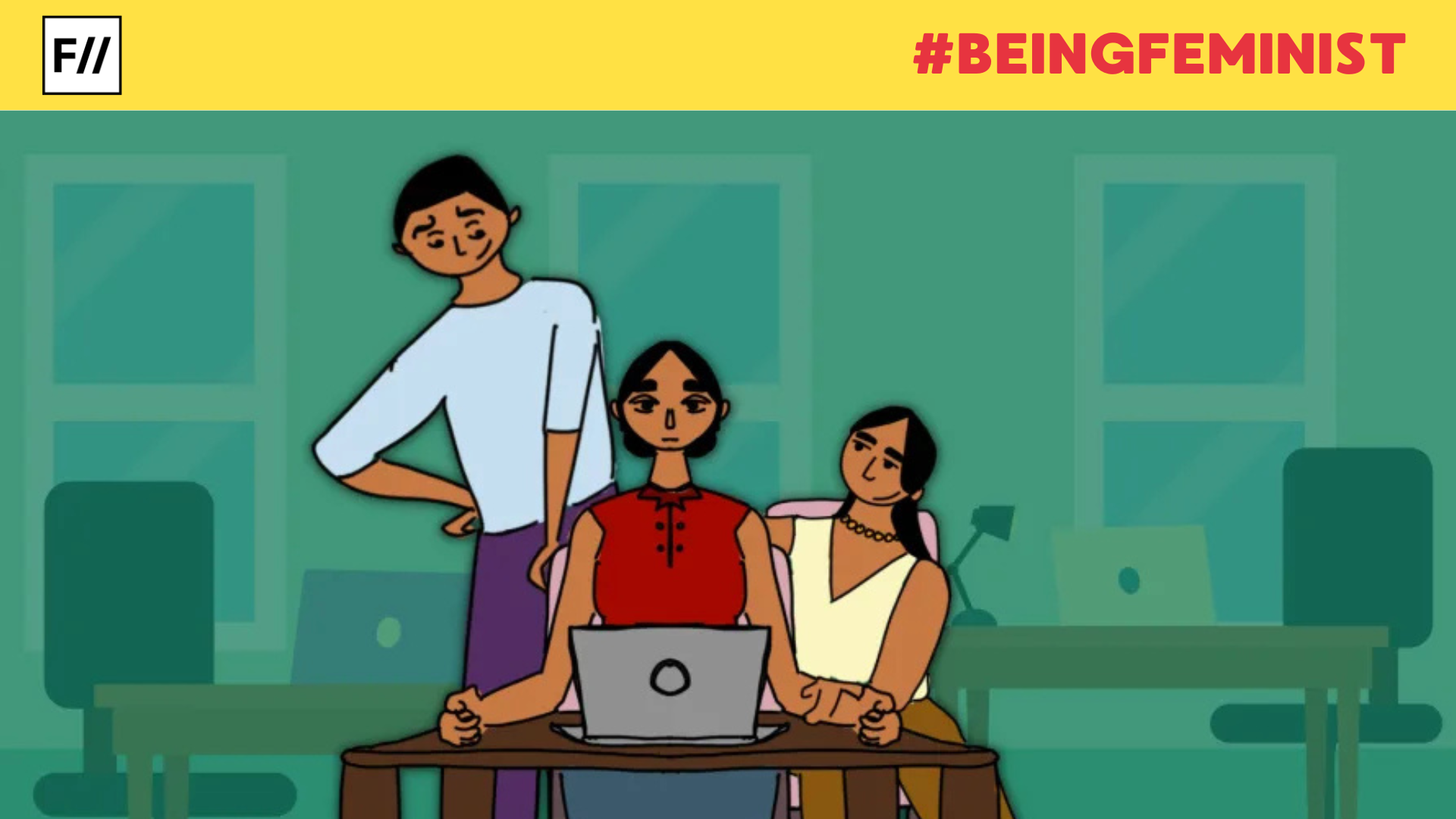Recently, the Rajasthan government has decided to increase the existing 30% reservation for women in the state’s third grade teacher exams to 50%. Reservation on the basis of caste, gender and religion has been a part of social debate in India. While on the one hand, this decision of the government is a welcoming decision as it will increase employment opportunities for women and open the way for their socio-economic participation, on the other hand, the intention of the state behind this seems to further justify gendered division of labour. Also, a look at the crowd that gathered at various district headquarters in protest against this decision and the arguments of their self-proclaimed leaders also shows the extent of misogyny present in the society.
It should be noted that according to the World Economic Forum’s Global Gender Gap Report, 2023, India ranks 127th out of 146 countries.
There is opposition to women’s reservation at various levels. At the first level are those who believe that women’s reservation itself is unnecessary. Such arguments were also raised when the Government of India introduced the Nari Shakti Bill last year. It should be noted that according to the World Economic Forum’s Global Gender Gap Report, 2023, India ranks 127th out of 146 countries. According to a study by the National Institute of Rural Development and Panchayati Raj, women’s participation in India’s Gross Domestic Product is only 18 percent. According to information provided by the government, the number of women in the Indian Army is less than four percent.
Women make up 10 percent of the judges in the Supreme Court, 14 percent in the High Court, around 10 percent in the police service, and 16 percent among scientists. Despite the introduction of a new bill, before its implementation, political parties made no effort to increase women’s political representation, resulting in the number of female MPs in the new parliament decreasing from 78 to 73, which makes only 13 percent of the House. Similarly, the number of women members in the new assembly after the elections held in Rajasthan in December, decreased from 23 to 20, which is only 10 percent of the house strength. The condition of representation of women in almost all significant sectors in the country remains a matter of serious concern.
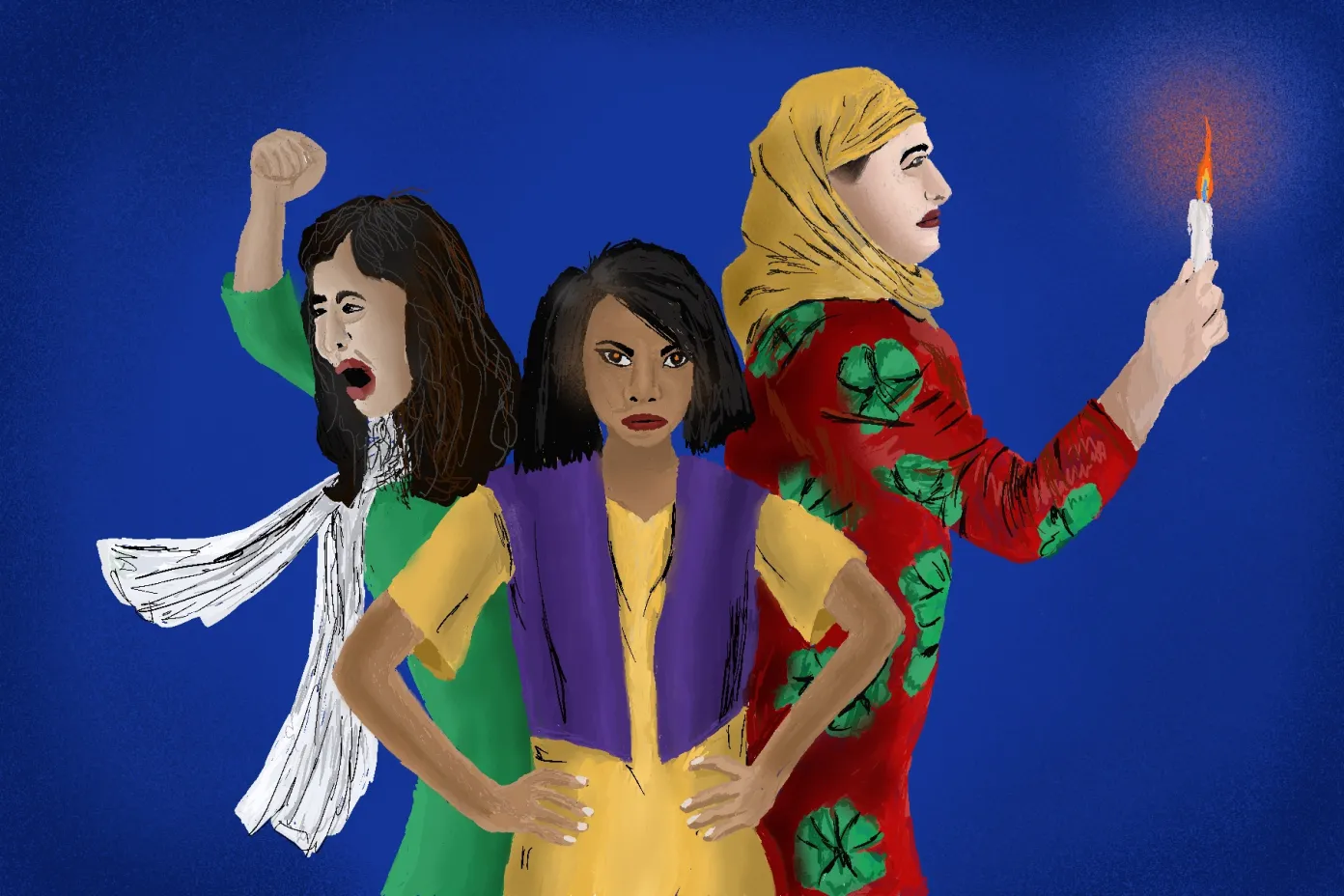
Crimes against women in India are increasing at an alarming rate. Every hour, 51 cases of crimes against women are being registered in the country. In 2022, Rajasthan was in third place for crimes against women, after Uttar Pradesh and Maharashtra, and it ranked first in the country for rape cases. Given the historical exploitation of women and the current circumstances, the necessity for women’s reservation in the country, including Rajasthan, becomes evident.
Double standards regarding women of male rights activists
Others are those who are opposing the new women’s reservation law but pretend to support women’s empowerment. Manoj Meena of the Rajasthan Integrated Unemployed Association, who led the protest in Jaipur, says that the Chief Minister should increase the number of women in his cabinet to 50 percent for women’s empowerment and reduce the increased reservation in teacher recruitment.
It is true that to move a society shackled by patriarchal ideas for thousands of years towards ideological change, it is necessary to send a positive message by making changes at the top levels of authority. However, Manoj and the group of men with him are unable to understand and explain why it is necessary to revoke the women’s reservation implemented in teacher recruitment for this purpose.
However, Manoj and the group of men with him are unable to understand and explain why it is necessary to revoke the women’s reservation implemented in teacher recruitment for this purpose.
Such irrational protests repeatedly make us realise that the privileged section of society can resort to any baseless show of power for their narrow self-interest, while the deprived section is neither resourceful nor capable of fighting even for their universal rights.
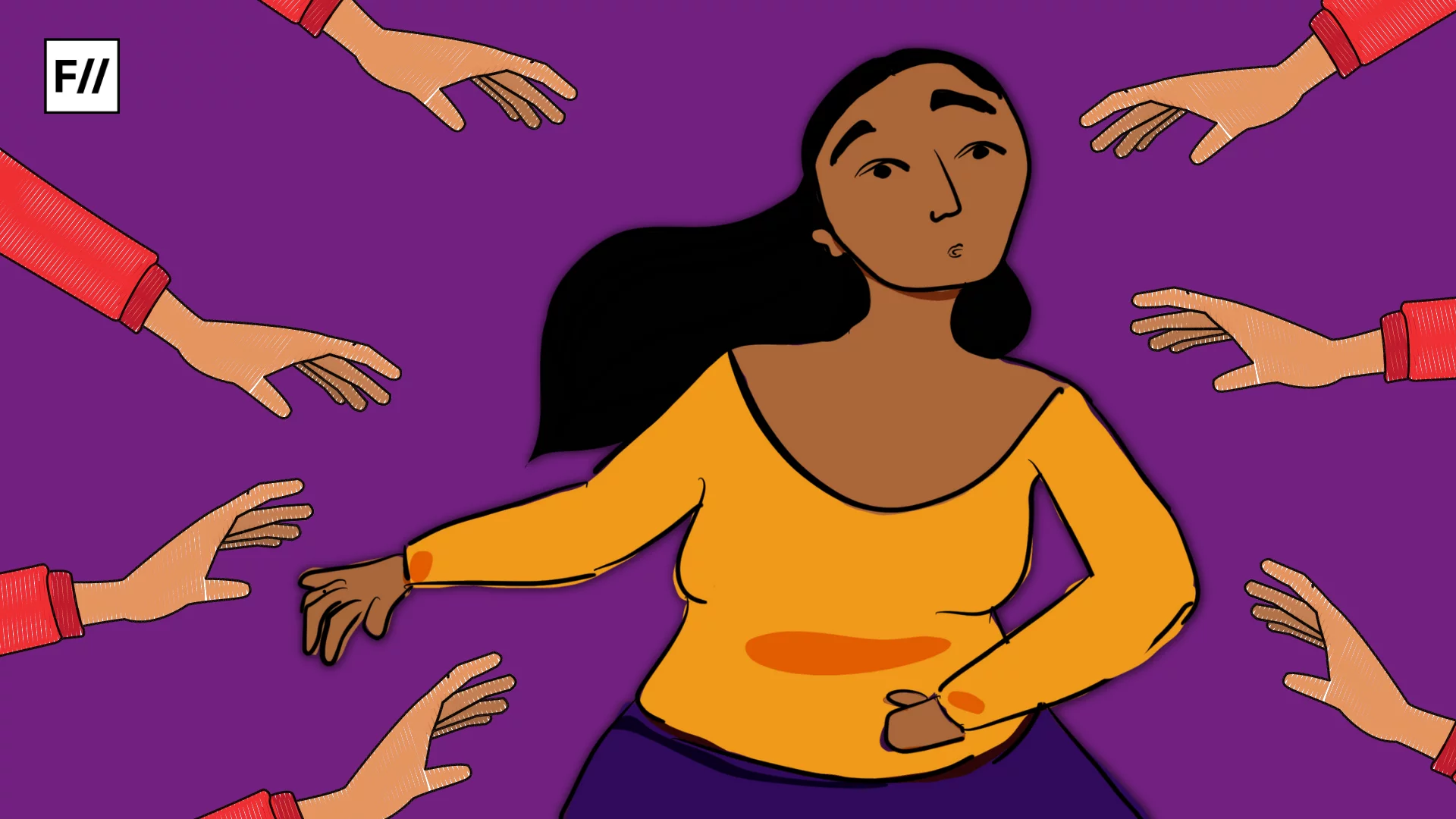
This was also evident when some young people from higher castes caused disorder through arrogant displays of power in opposition to the reservation given to backward classes in our country. In contrast, there were no significant protests from any tribal, Dalit, or backward communities against the reservation given to economically weaker sections of higher castes. This occurred despite the government setting the maximum annual income for economic backwardness at 8 lakhs. Meanwhile, the government considers an annual income of 27 thousand rupees as the maximum poverty line.
Questioning the intent of the state
Although this decision may seem feminist, it has many layers. It is noteworthy that the government has limited this reservation decision to teacher recruitment only up to the 8th grade. During a meeting with a group of female students after this decision, the Chief Minister stated that he is committed to increasing employment opportunities for women. He emphasised that female teachers are naturally more capable of nurturing young children.
Traditionally, in our society, men have been seen as breadwinners and women as caretakers of the household. When women began stepping out to earn a living, the patriarchal society started dictating which professions were suitable for them and which were not. By suggesting that certain jobs are not suitable for women, they are indirectly implying that women are not capable of these jobs. This way, they aim to maintain male dominance in most professions.
According to a survey conducted by career advice expert Kellie Hanna, 82% of people believe that some jobs are either meant only for men or for women.
According to a survey conducted by career advice expert Kellie Hanna, 82% of people believe that some jobs are either meant only for men or for women. Typically, professions such as babysitter, nurse, primary teacher, and receptionist are considered suitable for women, whereas jobs like truck driver, electrician, contractor, police officer, and soldier are considered suitable for men.
In 2019, AIIMS administration decided to reserve 80% of nursing positions for women, and the Supreme Court upheld this decision. Supporters of the decision argued that women are naturally caring and nurturing, making them well-suited for nursing.
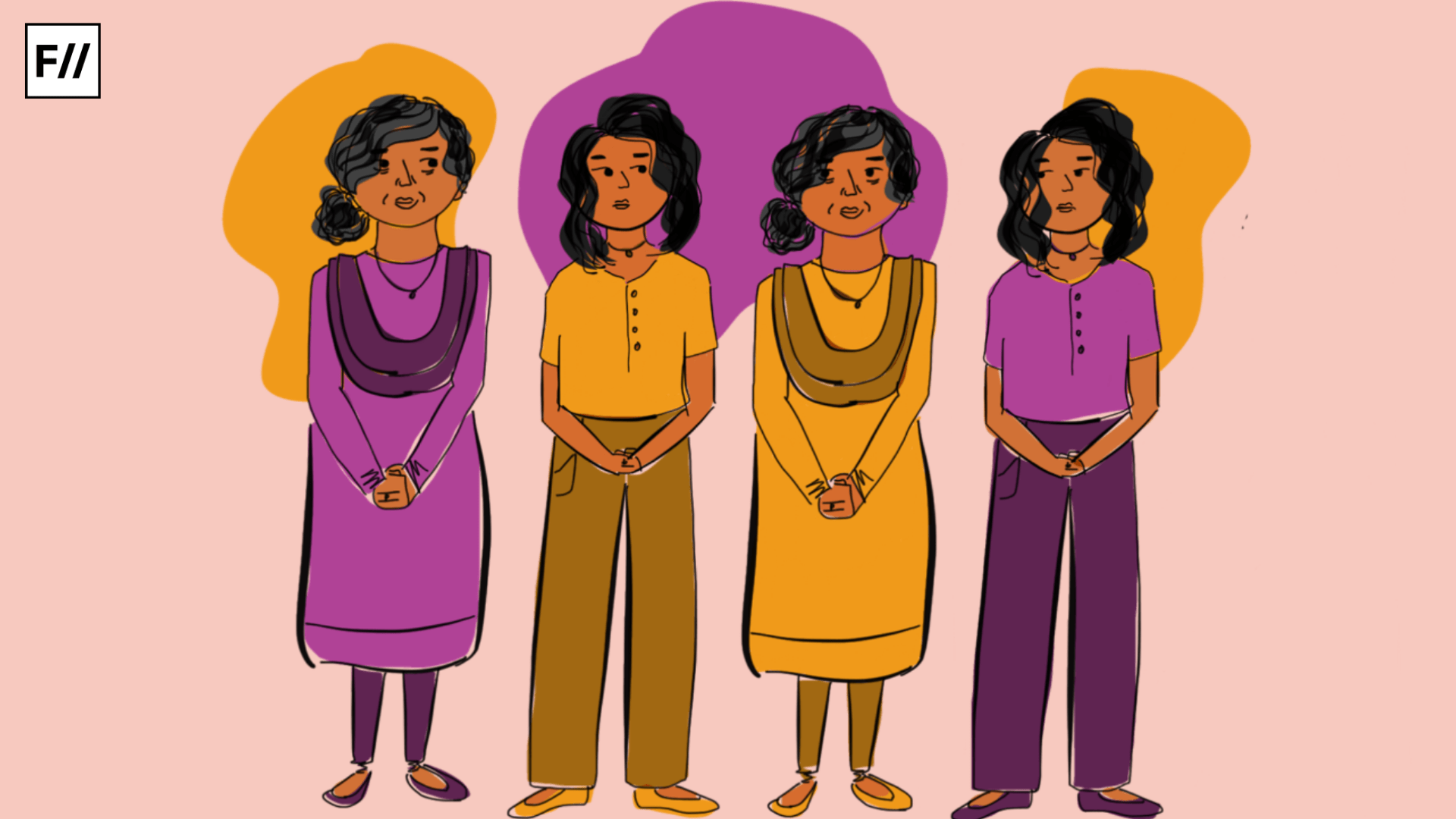
You might wonder, what’s wrong with this? This argument is part of a long debate about gender-based division of human qualities. To understand this, we must turn to Nancy Fraser. Fraser says that there are two common approaches to achieving gender equality: providing women equal job opportunities as men, and paying for care work instead of treating it as unpaid labor. However, Fraser rejects both of these and proposes the Universal Caregiver Model. She believes true gender equality requires sharing care work, traditionally seen as women’s work, between men and women. This would give care work proper respect and involve both genders in all types of work.
By reserving positions for women only in fields like primary teaching and nursing, the government reinforces stereotypes and limits women’s opportunities to certain professions.
By reserving positions for women only in fields like primary teaching and nursing, the government reinforces stereotypes and limits women’s opportunities to certain professions. Bhavana, a Project Associate at the Institute of Development Studies Jaipur, says such laws give families and relatives a justification to push girls into restricted career paths. As a result, even those girls who wish to pursue other careers end up becoming teachers. This keeps male dominance intact in most professions.
It’s time for the government and society to focus on creating an inclusive environment and making space for marginalised groups in all employment sectors based on caste, religion, and gender. There should be consistency and uniformity in reservation provisions.
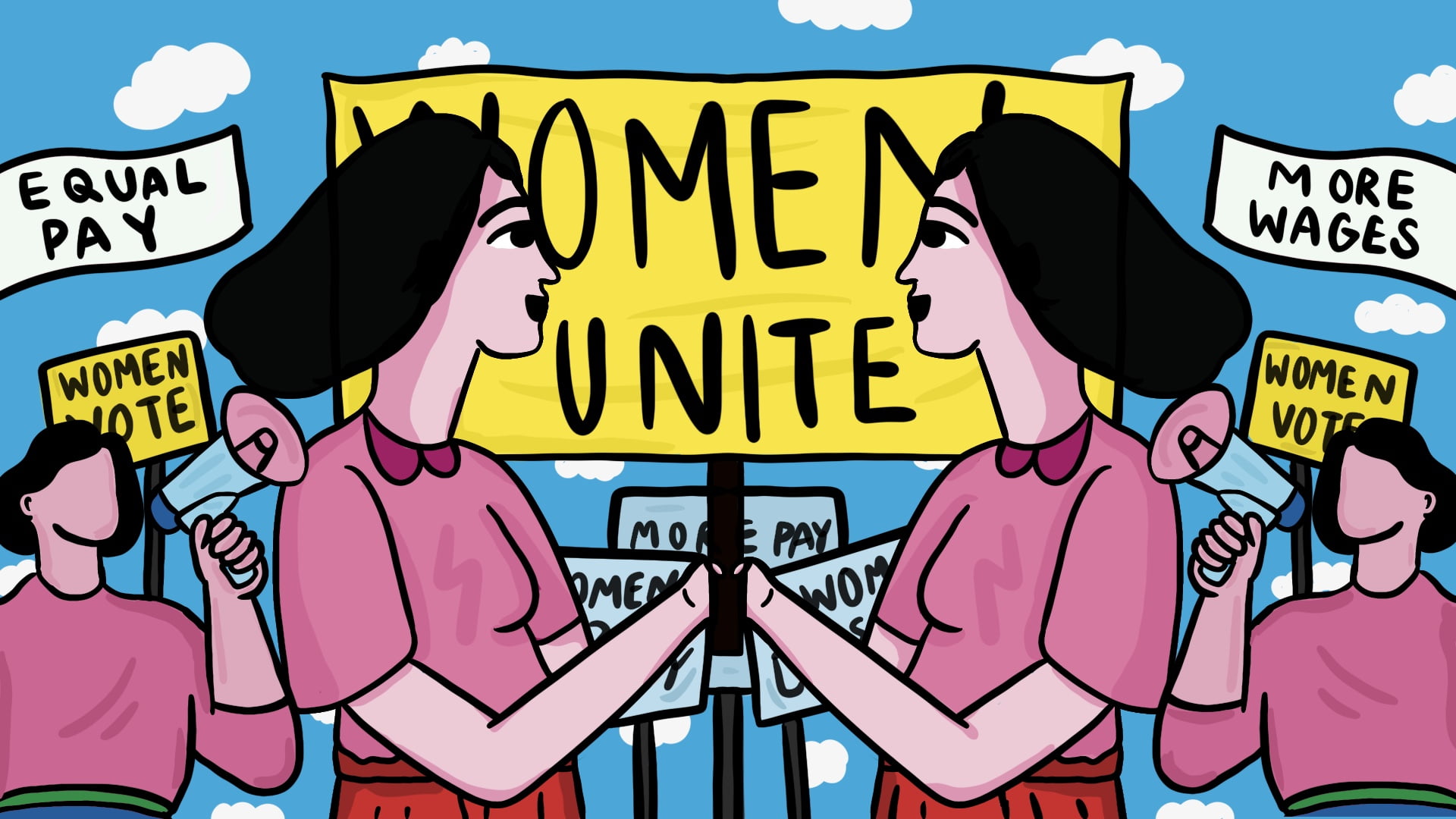
To achieve true gender equality and dismantle deeply ingrained stereotypes, we need comprehensive reforms that go beyond limited reservations. Encouraging women to enter diverse fields and ensuring equal opportunities for all genders will create a more balanced and fair society. By broadening the scope of affirmative action and fostering an environment where everyone can pursue their chosen career paths, we can break the cycle of gender-based occupational segregation and move towards a more inclusive and equitable future.
About the author(s)
Rahul is a PhD candidate at the Department of Humanities and Social Sciences, MNIT Jaipur. His research focuses on democratic decentralization, local governance, and political-administrative dichotomies. He is also interested in contemporary Indian socio-political thought and alternate histories, particularly those highlighting social and spatial marginality. Rahul holds a master's degree from the Faculty of Social Sciences at South Asian University. He has a deep passion for Hindi literature and enjoys discussing it at length.
